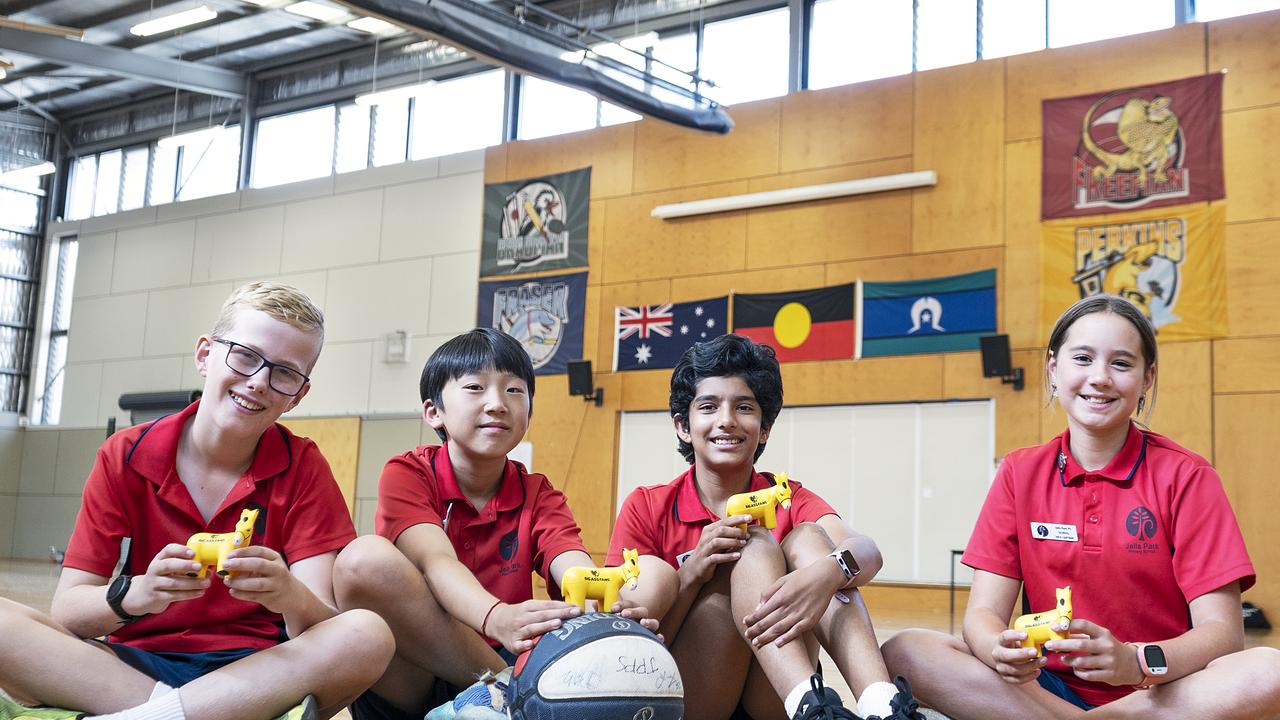Kylie Kwong’s journey through the western Sydney food scene has been a voyage of discovery of both cuisines and cultures
Drawing on her experiences as a Chinese Australian, Kylie Kwong has spent the past nine months exploring the food of western Sydney and the cultures and traditions that have helped shaped these diverse and delicious cuisines.

Partner Content
Don't miss out on the headlines from Partner Content. Followed categories will be added to My News.
Kylie Kwong may have hung up her apron but the acclaimed chef is as passionate about food and cooking as ever in her new role as an associate with the Powerhouse Museum.
Drawing on her experiences as a Chinese Australian, Kwong has spent the past nine months exploring the food of western Sydney and the cultures and traditions that have helped shaped these diverse and delicious cuisines.
She sees food as a vital way to connect communities and she wants to share her discoveries with others and continue to investigate the influence of food on the culture of Sydney.
1.How would you describe your role at the Powerhouse?
In my role as a Powerhouse Associate I have the incredible opportunity to continue my great passion of using food as a catalyst for positive social impact and cultural exchange.
This includes curating programs that celebrate food as a cultural touchstone, showcasing its power to unite communities and preserve traditions. Over the past nine months, I’ve witnessed first hand how food transcends boundaries. Collaborating with multigenerational families running beloved local eateries, I’ve been inspired by the deep respect and warmth embedded in these communities. Their dedication to tradition and openness to dialogue have profoundly shaped my work.
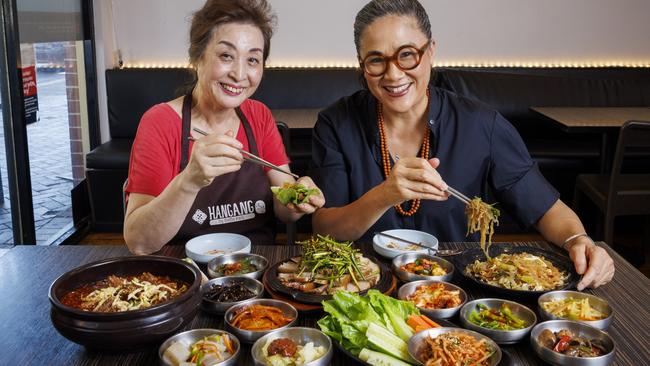
2. In this new role are you building on your knowledge of food and how we eat?
The programs at the Powerhouse explore how food reflects societal values, histories, and innovations, while engaging with local producers and chefs to highlight sustainability and entrepreneurship. I can delve deeper into the cultural significance of food and its evolving role in shaping community identities.
3. How did you learn about Hangang and Mama Park?
When I began my journey with Powerhouse Parramatta, I was eager to explore the
vibrant multicultural culinary landscape of western Sydney through the insights of those who know it best – the locals. I reached out to Kevin La, a highly respected and beloved western Sydney food content creator who has introduced me to numerous longstanding, family-run eateries, including Hangang by Mama Park in Strathfield.
4. What is it about Mama Park’s food and restaurant that makes it so special?
The moment I stepped into Hangang by Mama Park and met the owner and chef, Jimin “Mama” Park, I felt an instant soul connection. It was as if we had known each other for a thousand years. As a fellow cook and restaurateur, I could deeply relate to her journey and saw in her the reflection of my own mother: a gracious, hardworking and nurturing woman. Jimin embodies these qualities with her warm heart, tireless dedication, and ability to express love through her traditional, home style Korean dishes.
Mama Park’s creations carry an added depth of flavour because they are infused with her warmth and love for the community.
At 70 years old, Mama Park continues to amaze with her dedication. Alongside her 79-year-old husband, Song-Hee, she shops for fresh vegetables weekly, prepares and cooks everything herself, serves customers six days a week, and even handles the washing up — all on her own.
Meeting Mama Park was not just an encounter with an extraordinary chef but also a reminder of the power of respect, tradition, and community.

5. Traditional, family-run restaurants are so much a part of western Sydney. Why do new Australians often choose to open restaurants?
Growing up in a large immigrant Chinese family, food was at the heart of our daily lives — a powerful expression of cultural identity and familial love. For many new Australians, opening restaurants becomes a meaningful way to share their heritage, create economic opportunities, and build connections within their communities.
Over my three decades as a restaurateur, I have cherished the opportunity to share the food of my Chinese heritage. I’ve witnessed first hand how food serves as a universal language — bridging cultural divides, breaking down barriers, and transforming restaurants into spaces for storytelling and the preservation of tradition.
In western Sydney, migrant-owned restaurants play a vital role in showcasing diverse culinary traditions while enriching the region’s vibrant and ever-evolving food scene.
I am passionate about highlighting the cultural significance of the many small, independent, family-run restaurants in western Sydney. These establishments are the heart and soul of the region.
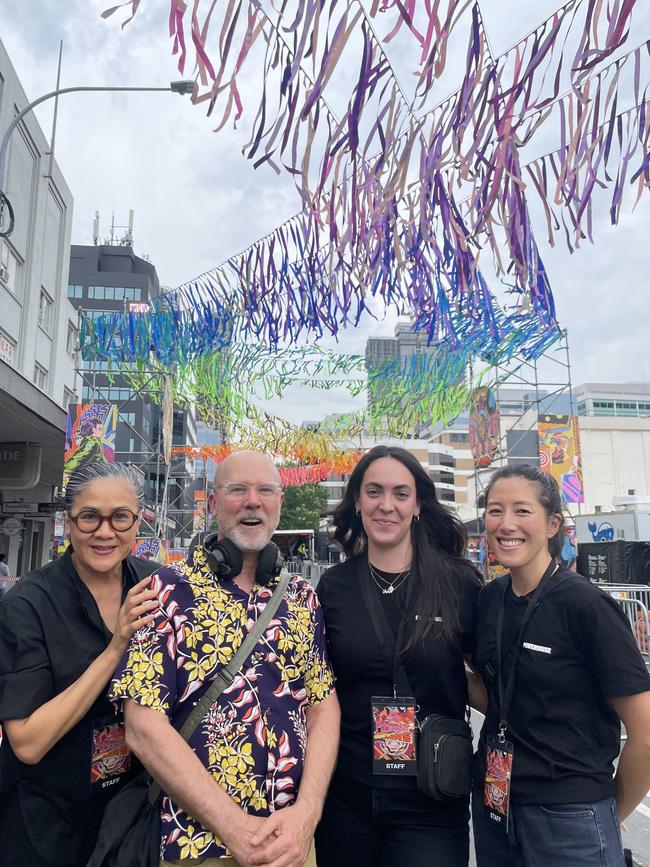

TRADITIONAL COOKING
Cooking traditional, hand made, fresh Korean food takes a lot of energy but, despite being in their seventies, Jimin Park, known affectionately as Mama Park and her husband, Song Hee Park happily do so every day at their restaurant Hangang.
Mama Park emigrated to Australia in her twenties and always wanted to run a restaurant. She still loves seeing diners discover the dishes of her childhood and making people happy.
After a much-needed break in Korea with their daughters, Hangang reopens for business today. It is the most recent of the Park family’s restaurants. The first opened in 2014. Before that they ran a Korean side dish shop in Strathfield for years.
“It’s home cooked traditional Korean food and food I cook for my family,” Ms Park said. “It’s Korean cooking the way it should be done. Nothing fancy, everything is made by me and with my own hands.”
The self-taught chef created her dishes from memory.
“I immigrated to Australia when I was 26 years old. I missed my Mum and my family and I started cooking and asking my mum and sisters over the phone how to cook things. I cooked by remembering what my mum’s food back in Korea was like and tasted like,” she said. “ I enjoy hearing Korean diners comment on how it tastes like home and reminds them of their childhood. To know I made food with my own hands, I know what’s gone inside it and how much time and care it’s taken to make something and people appreciate it, it’s very fulfilling. That makes my heart happy.”

KYLIE KWONG’S TOP 10 WESTERN SYDNEY RESTAURANTS
1. Sun Ming BBQ – Hong Kong Cantonese, Parramatta
A longstanding favourite in Parramatta, renowned for its authentic
Hong Kong-style Cantonese cuisine, especially its expertly prepared BBQ meats like
roast duck and pork, as well as tender soy chicken with ginger and shallot,
comforting plain congee, wonton noodle soup and the signature Fried Sticky
Rice. The restaurant is praised for its generous portions, reasonable prices, and
family-like atmosphere, making it a go-to spot for locals seeking classic Cantonese
flavours.
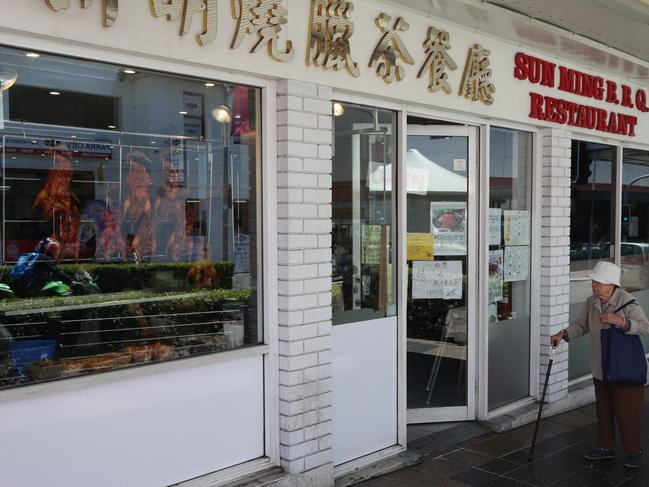
2. Hangang By Mama Park – Traditional Korean, Strathfield
A family-run Korean restaurant in Strathfield, celebrated
for its authentic, home-style Korean dishes, all prepared using family recipes and
traditional methods. Mama Park is known for her delectable and generous version of
Bossam Steamed Pork, Raw Marinated Soy Crab, Beef Rib Soup and her freshly
made side dishes or ‘Banchan’ that accompany each meal. The restaurant is
especially popular among Korean patrons for its genuine flavours and is considered
a standout for those seeking a true taste of Korea in Sydney.
3. Chatkazz – Harris Park
A vibrant vegetarian Indian restaurant known for its
extensive menu featuring street food classics, pan-Indian specialties, and Indo-
Chinese fusion dishes. The restaurant is especially popular for its variety of chaats,
dosas and delicious versions of classics, pav bhaji, chhloe bhatura and paneer
paratha, offering a lively and authentic Indian dining experience. With options
catering to Jain, vegan, and no onion/garlic diets, Chatkazz is a favourite for diverse
groups seeking bold, spicy, and delicious Indian flavours.

4. Gursha Ethiopian – Blacktown
A warm, authentic Ethiopian dining experience,
featuring the traditional Ethiopian flatbread, injera, topped with a variety of
homestyle, richly flavoured stews including; Shiro Wot (spicy ground chickpeas) and
Doro Wot (spicy chicken stew). Or as a starter, crispy Sambossa (fried pastries) and
lamb shekla tibs as a main, served in a sizzling hot iron pan. The menu caters to
both vegan and non-vegan diners, reflecting the diversity of Ethiopian cuisine and
hospitality. Since opening in 2017, Gursha has become a local favourite for those
seeking soulful, organic, and genuinely prepared Ethiopian food.
5. Al Shami – Syrian, Merrylands
An authentic Syrian culinary experience, led by award-winning head chef Ali Snoubar, who brings over 25 years of expertise in
Middle Eastern cuisine. Everything is made from in-house, and the restaurant is
distinguished by its use of fresh, hand-selected ingredients found in traditional
recipes including – the Al Shami Mixed Mashawi, a generous platter of tender grilled
meat and chicken skewers, delicate, crispy falafel, Sujuk, spicy Turkish sausages,
Syrian baba ghannouj and Kashta ice cream, Syrian style with crunchy pistachios.
6. Pho Tau Bay – Vietnamese, Cabramatta
One of Cabramatta’s busiest and most beloved pho
restaurants, this institution consistently draws crowds for its old-school, high-quality Vietnamese comfort food and fresh, aromatic noodle soups. The restaurant is renowned for its
rich, aromatic Phó Bò Beef Combination broth making it a staple for pho enthusiasts
in Sydney’s vibrant Vietnamese community.
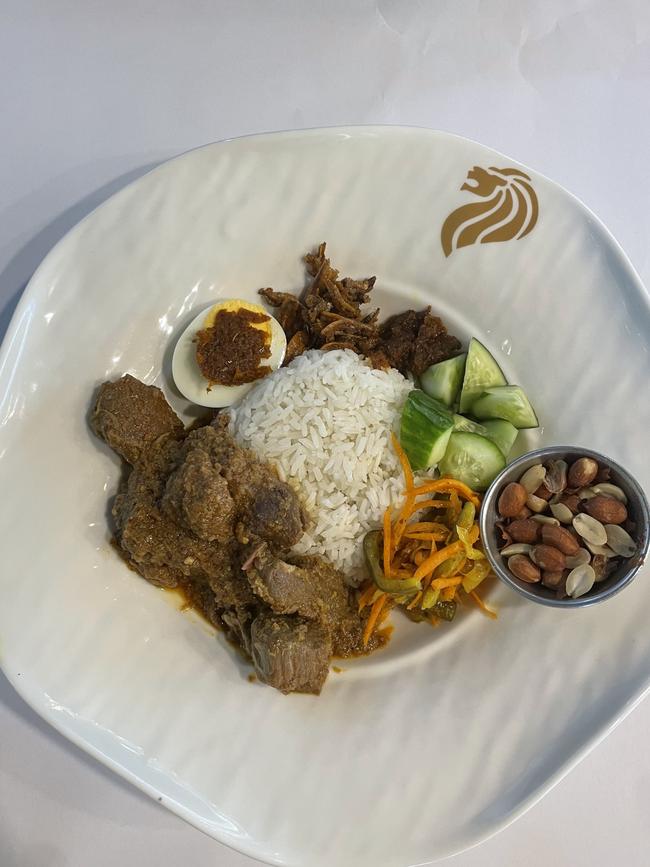

7. Gebran Lebanese Cuisine – Mount Lewis
Known for its traditional Lebanese dishes and a menu that highlights the rich flavours and textures of Lebanon, cooked with fresh local ingredients. The restaurant features a variety of mezze, grilled meats, seafood and classic desserts, all prepared from authentic recipes with
deep care. A lively and bright tasting Tabbouli, cloudlike hommos, delicate Warak
Inab (vine leaves stuffed with rice and herbs), super fresh version of Kibbeh Nayye
(fresh raw meat, finely blended with burghul and special condiments) and more-ish
salt and pepper quails. Its welcoming atmosphere and attentive service make it a
popular choice for family gatherings and celebrations.
8. Temasek – Singaporean-Malay, Parramatta
A longstanding institution specialising in Singaporean and Malaysian cuisine, Temasek is famous for its beef curry puffs, Hainanese chicken rice, laksa Singapura with chicken, and chilli crab. The restaurant is celebrated for its authentic flavours, generous portions, and a menu that captures the diverse culinary heritage of Singapore and Malaysia. For over three decades, Temasek’s consistent quality and bustling atmosphere have made it a favourite among locals and visitors seeking Southeast Asian comfort food.

9. Albee’s Kitchen – Malaysian, Campsie
This is a go-to spot for Malaysian food lovers, offering a wide
range of traditional dishes such as nasi lemak, char kway teow, Kuching laksa and
Penang-style curries. The restaurant is praised for its fresh, high-quality ingredients,
authentic taste, affordable prices, and extensive menu that caters to both Malaysian
expatriates and newcomers to the cuisine. Albee’s Kitchen is especially popular for
its homestyle cooking and vibrant, casual dining environment.
10. Chef Ceylon – Sri Lankan, Toongabbie
Bringing the bold and aromatic flavours of Sri Lankan cuisine to Sydney’s west, it features specialities like hoppers, kottu roti, lamprais and a wide array of spicy vegetable, meat and chicken curries. The restaurant is known
for its generous portions, authentic recipes, and a menu that caters to both
vegetarians and meat lovers. Chef Ceylon’s commitment to traditional Sri Lankan
cooking techniques and warm hospitality has earned it a loyal following among the
local community.
To learn more about Powerhouse Food programs, visit: powerhouse.com.au/food


